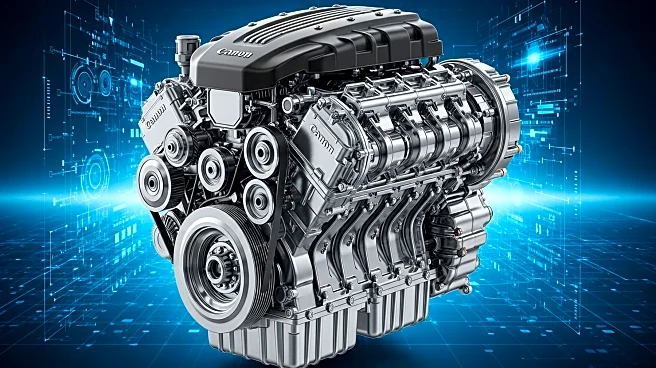What is the story about?
What's Happening?
Horse Technologies, a company formed through a joint venture between Renault Group and Geely Fund, has begun production of the world's first mass-produced liquified petroleum gas (LPG) direct-injection engine. The HR12 LPG engine is a turbocharged 1.2-liter three-cylinder engine capable of running on both gasoline and LPG. This engine integrates a 48-volt mild hybrid system, which enhances torque during acceleration, reduces fuel consumption, and lowers CO2 emissions. The engine delivers 138 horsepower at 5,500 rpm and 170 pound-feet of torque at 2,100 rpm. When using LPG, it achieves a 9% reduction in CO2 emissions compared to gasoline. The engine is Euro 6e compliant and is set to meet future Euro 7 standards.
Why It's Important?
The introduction of the HR12 LPG engine marks a significant advancement in automotive technology, particularly in the realm of alternative fuels. By utilizing direct injection technology for LPG, Horse Technologies is setting a new standard for efficiency and performance in bi-fuel engines. This innovation could lead to broader adoption of LPG as a cleaner alternative to traditional gasoline, potentially reducing the automotive industry's carbon footprint. The engine's mild hybrid system further enhances its environmental benefits, making it a compelling option for manufacturers seeking to meet stringent emissions standards.
What's Next?
Horse Technologies plans to produce the HR12 LPG engine at its Mioveni plant, with a capacity of 450,000 engines per year. As the engine is Euro 6e compliant and ready for Euro 7 standards, it is poised to become a key player in the European market. The success of this engine could encourage other manufacturers to explore direct injection technology for alternative fuels, potentially leading to more widespread adoption and innovation in the industry.
Beyond the Headlines
The HR12 LPG engine represents a technological breakthrough by combining direct injection, mild-hybrid assistance, and industrial-scale production. This combination allows for more precise combustion, improved power, and better efficiency, which could influence future engine designs. The development of this engine also highlights the growing importance of alternative fuels in the automotive industry, as manufacturers seek to balance performance with environmental responsibility.
















